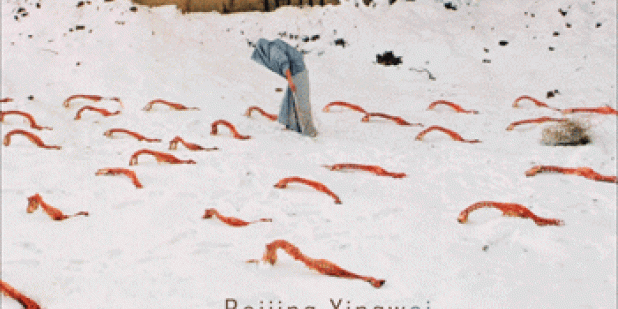Happy Lunar New Year from the USC US-China Institute!
BX for CTS: Transpacific Cultural Politics in Contemporary Time-Based Art
The USC Center for Transpacific Studies hosts Professor Meiling Cheng, who will discuss her new book, Beijing Xingwei: Contemporary Chinese Time-Based Art

From cannibalism to light-calligraphy, from self-mutilation to animal sacrifice, from meat entwined with sex toys to a commodity-embedded ice wall, the idiosyncratic output of Chinese time-based art over the past thirty years has invigorated contemporary global art movements and conversation. In Beijing Xingwei, Meiling Cheng engages with such artworks created to mark China's rapid reintegration into the global communities and its concurrent transformations in the post-Deng era. The book offers the first in-depth and comprehensive study of the country's time-based art via two related experimental modes: xingwei yishu (performance/behavior art) and xingwei-zhuangzhi yishu (performative installation art).
Enacting her role as a self-reflexive, transpacific critical subject, Cheng chronicles her prolonged inquiry into a wide range of evanescent artworks selected from more than 40 Beijing-based artists. Beijing Xingwei suggests that the act of naming time-based art intensifies the author's temporal experiences and expressions, which in turn bring into relief the reader's own consciousness of time. At a moment when time is explicitly linked with speed and profit, Beijing Xingwei explores multiple alternatives for how people with imagination can spend, recycle, and invent their own time. In her talk at USC's Transpacific Center, Cheng will discuss Beijing Xingwei by focusing on two chance encounters that initiated her research into Chinese time-based art and her subsequent reflection on her choice as a Taiwanese-American immigrant artist/scholar venturing into a previously taboo sociocultural geography: China.
Co-sponsored by USC Department of American Studies & Ethnicity. Light lunch will be provided.
Featured Articles
We note the passing of many prominent individuals who played some role in U.S.-China affairs, whether in politics, economics or in helping people in one place understand the other.
Events
Ying Zhu looks at new developments for Chinese and global streaming services.
David Zweig examines China's talent recruitment efforts, particularly towards those scientists and engineers who left China for further study. U.S. universities, labs and companies have long brought in talent from China. Are such people still welcome?






